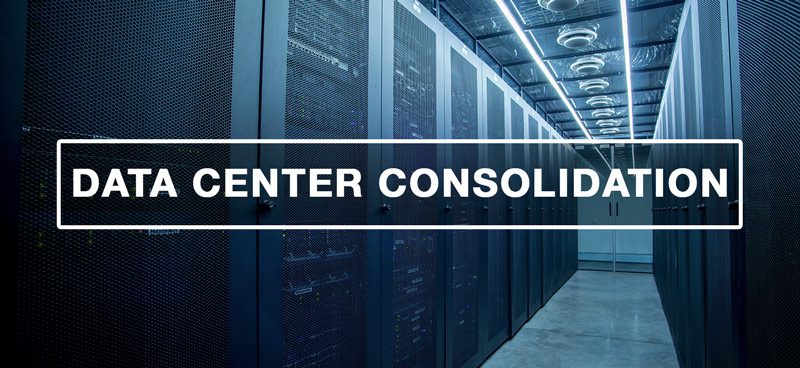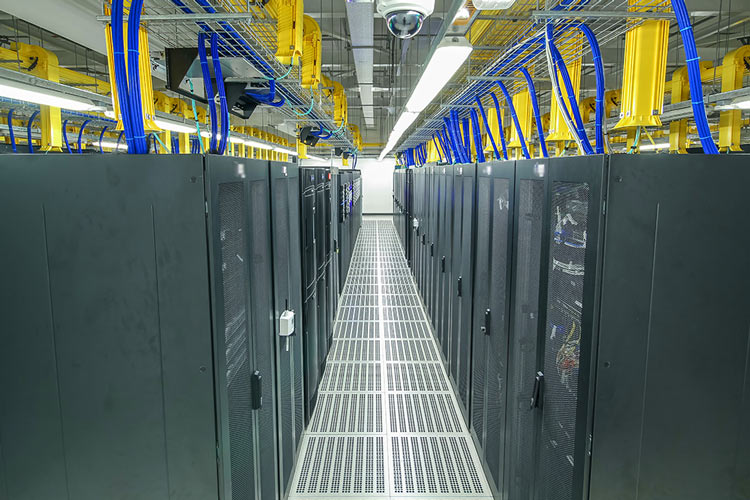Data center consolidation is crucial to manage your business’s IT infrastructure efficiently.
As a Chief Technology Officer or business owner, it is your job to recommend solutions that enable your organization to run smoothly while saving costs – and data center consolidation is an excellent way to help you achieve this.
Still, it is essential to understand data center consolidation and how to implement it to achieve the intended results.
This post explores data center consolidation, the benefits, and what you can expect by deploying this strategy.
What is Data Center Consolidation, and Why Might Your Business Need It?
Data center consolidation is a process that aims to enhance the efficiency of an organization’s IT architecture.
It involves physically merging multiple data centers into one or optimizing a single large data center to run more effectively using fewer resources.
Data center consolidation is a strategic decision to improve the operation of IT resources, potentially leading to significant efficiency gains and cost savings.
It’s about doing more with less without compromising the performance or reliability of the IT framework.
Think of it as a way to maximize the output of a data center while minimizing its input, often achieved through the application of advanced technologies and strategic planning.
IT consolidation goes beyond the data center or warehouse, applying efficiency standards across the entire IT infrastructure.
It also covers aspects like networks, storage systems, and software.
Benefits of Data Center Consolidation
Data center consolidation offers numerous advantages, including:
The Cost-Cutting Benefit
Data center consolidation can significantly reduce operating costs.
By decreasing the number of physical servers and other equipment, businesses can cut down on hardware acquisition and maintenance costs.
Besides, since fewer servers mean lower energy consumption for operation and cooling, power costs can also be reduced. In addition, having fewer data centers can decrease the expenses associated with space, such as rent or property taxes.
The increased efficiency and lower resource usage can translate into substantial financial savings over time.
Better Security and Risk Mitigation
Consolidation can enhance security by simplifying the IT infrastructure, making monitoring, managing, and securing it easier.
Fewer data centers mean fewer points of potential failure or attack, reducing the risk of data breaches.
Centralizing data allows organizations to implement more stringent and consistent security measures, allowing for better control over who has access to information.
This centralization also makes it easier to apply updates and patches, further mitigating potential security risks.
Environmental Benefits
Data center consolidation has significant environmental benefits.
As stated, the fewer the data centers, the less energy is required, significantly reducing an organization’s carbon footprint.
By optimizing server usage through virtualization, companies can also decrease the amount of electronic waste they produce and extend the lifespan of existing hardware.
Thus, consolidation can be essential to an organization’s sustainability strategy, contributing to global efforts to combat climate change.
Enhanced Productivity
Consolidation can lead to improved productivity.
Streamlining IT operations allows organizations to eliminate redundancies and improve efficiencies. In addition, IT staff can focus on strategic, value-added tasks rather than routine maintenance and troubleshooting.
Further, by centralizing resources, businesses can make data and applications more readily available to employees, potentially improving collaboration and speeding up decision-making processes.
This improved accessibility and efficiency can lead to increased productivity across the organization.
Safer Disaster Recovery Strategies
Data center consolidation can improve disaster recovery strategies.
Organizations can implement consistent backup and recovery procedures more easily by centralizing data and applications in fewer locations. This can lead to faster recovery times during a disaster, reducing downtime and the associated costs.
Moreover, the use of virtualization can allow for quicker and more flexible restoration of services.
By simplifying the IT infrastructure, data center consolidation makes planning for and responding to disasters easier, making recovery strategies safer and more effective.
Why Your Business Needs Data Center Consolidation
Data center consolidation is a smart move for your business if the benefits above are anything to go by. But why would your organization need it?
There are many reasons your business may need consolidation, such as:
- When you’ve merged with other companies
- When your data has grown significantly
- When there’s a reduction in your data requirements
- If you operate from multiple locations
Data center consolidation can help your business save money and enhance productivity in these scenarios.
Consider consolidating your data centers in such situations to safeguard your systems from cyber-attacks and, by extension, evade data recovery costs.
And, in case a disaster strikes, data center consolidation allows your business to recover quickly.
What Are the Possible Outcomes of Data Center Consolidation?
Besides the many benefits, data center consolidation can trigger a series of outcomes, including:
- It helps streamline your company data resources and simplify IT tasks.
- It can lead to a boost in your business’s overall long-term efficiency.
- Your team can convert raw data into actionable insight, promoting faster, information-backed decision-making.
How to Implement Data Center Consolidation
You must have a robust and well-structured implementation strategy to reap the benefits of consolidating your IT infrastructure.
Here’s a quick guide to help you navigate the process.
- Conduct a comprehensive analysis of your current physical assets and data infrastructure.
- Create a customized strategy to help you implement your strategy successfully.
- Analyze various data center consolidation designs to help you determine what can work for your business.
- Roll out consolidation
- Once complete, operate your data with optimal productivity and leverage the benefits.
Data Center Consolidation Best Practices
Ensure you abide by the following best practices before implementing data center consolidation and throughout the process.
- Keep all stakeholders informed about the pending consolidation.
- Create a budget.
- Hire an experienced project manager for the implementation.
- Develop a scope of work, and outline every phase of the process. Include safety procedures, reminders, and scenarios your team might encounter throughout the process.
- Create a list of all contact information.
- Arrange for removal and decommissioning.
- Audit your current data center.
- Have an implementation strategy and follow through with it.
Things to Look Out For
You must remain vigilant during the rollout process. That way, you can help handle the following possible pitfalls effectively.
- Compromised data security and potential data breaches due to lack of physical data security
- Data loss and errors during consolidation
- Downtime caused by missing data backups, delayed migrations, natural disasters, and lack of power backups
Tips to Manage Data Consolidation Effectively
Here’s how to avoid these pitfalls and risks to streamline your data consolidation process.
- Ensure you have enough funds to enable you to handle emergencies
- Determine what you want to consolidate to avoid overwhelming your crew.
- Determine where to store the consolidated data.
- Have a flexible implementation strategy.
- Take necessary precautions to avoid overloading or exceeding your bandwidth.
Volico Data Centers Can Help You Get Started with Data Center Consolidation
Volico Data Center is uniquely positioned to assist your organization in initiating a successful data center consolidation.
Our team of experts offers comprehensive knowledge and experience in IT infrastructure, providing you with a strategic and effective consolidation plan.
We understand the complexities of such a process and are committed to minimizing disruption while maximizing efficiency.
Our innovative solutions ensure cost savings, improved security, better disaster recovery strategies, and enhanced productivity.
Volico’s approach is environmentally conscious, supporting your organization’s sustainability goals.
We prioritize your specific needs and objectives, tailoring our services to provide the most beneficial outcomes for your organization.
Trust Volico to be your partner in this significant step towards a more efficient, secure, and sustainable IT future.
To get started with Volico colocation services, call (305) 735-8098 or chat with one of our data center consolidation experts.












